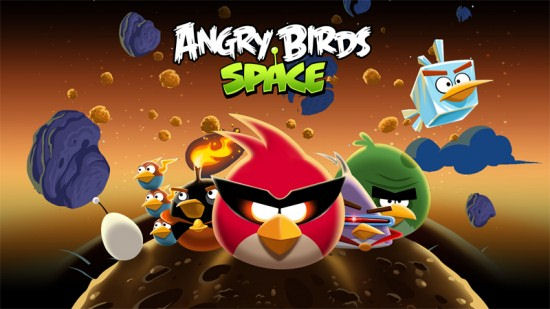The Bloomberg articles goes on to note that, for Rovio, supporting Windows Phone requires a lot of additional technical work and that it was too expensive for the company to adapt new games to Windows Phone, with the implication that the platform would not be supported.
Understandably this led to a number of negative headlines around Windows Phone and developer support, including a draft version of this story.
However, Reuters reports that Mikael Hed, Rovio's CEO, said that the company will be supporting the Windows Phone platform:
"We are working towards getting Angry Birds Space to WP7," Rovio Chief Executive Mikael Hed told Reuters, but said the launch date was not set.

With an installed based of around 10 million devices Windows Phone there's no doubting that the Windows Phone market is still in its infancy, when compared to iOS and Android. That said, looking at the current market numbers is rather short sighted. With Windows 8 on the horizon and Nokia's full bore commitment to its partnership with Microsoft, there's a strong case to be made that investing in Windows Phone now is a canny investment. The early bird catches the worm and keeping all your eggs in one basket (platform) is not a good idea. That's something that Rovio's CEO clearly recognises.
So what are the technical challenges Rovio face in porting Angry Birds Space to Windows Phone?
A cross platform game like Angry Birds will typically use as much common code between platforms as possible, usually in the form of C/C++ libraries. However, on Windows Phone, with a few exceptions, all development must be in managed code, which makes it difficult to use the native code from existing / ported C/C++ libraries. This effectively means that code which is shared between other platforms can not be used on Windows Phone. A secondary, but less serious factor, given the relative simplicity of the graphics in Angry Birds, is lack of support for Open GL in Windows Phone. The end result is that a greater proportion of code must be re-engineered to port to Windows Phone.
This, together with market size, is the most likely explanation for why Windows Phone was not a launch platform for Angry Birds Space. The late arrival of Angry Birds Space on Windows Phone (and the surrounding confusion) may still generate some negative headlines for Microsoft. The issue isn't about the absence of a single game, or even technical capabilities, but rather the perception it creates. Given Rovio's status as a poster-child for mobile game development, the danger for Microsoft is that it lends credibility to a strategy of Android and iOS first and Windows Phone second.
It is possible to include Windows Phone in a cross platform strategy, but it requires strategic planning from early on in the game development cycle and because of Windows Phone's current market position this is not something that happens very often. In reality means that for many developers, especially those with existing code libraries and related assets, it is easier to prioritise ports to other platforms or to make the decision to skip Windows Phone.
The managed code restriction partly reflects Microsoft's philosophical outlook, but performance considerations also play an important role. Ultimately though it reflects the level maturity of the platform; Microsoft were well aware that this would be an issue, especially for game developers, but it was not a priority area to address either for the launch version of Windows Phone or for the Mango update. The next version of Windows Phone is likely to see this issue address, with some level of native code support, but Microsoft has yet to make any formal announcements in this area.
